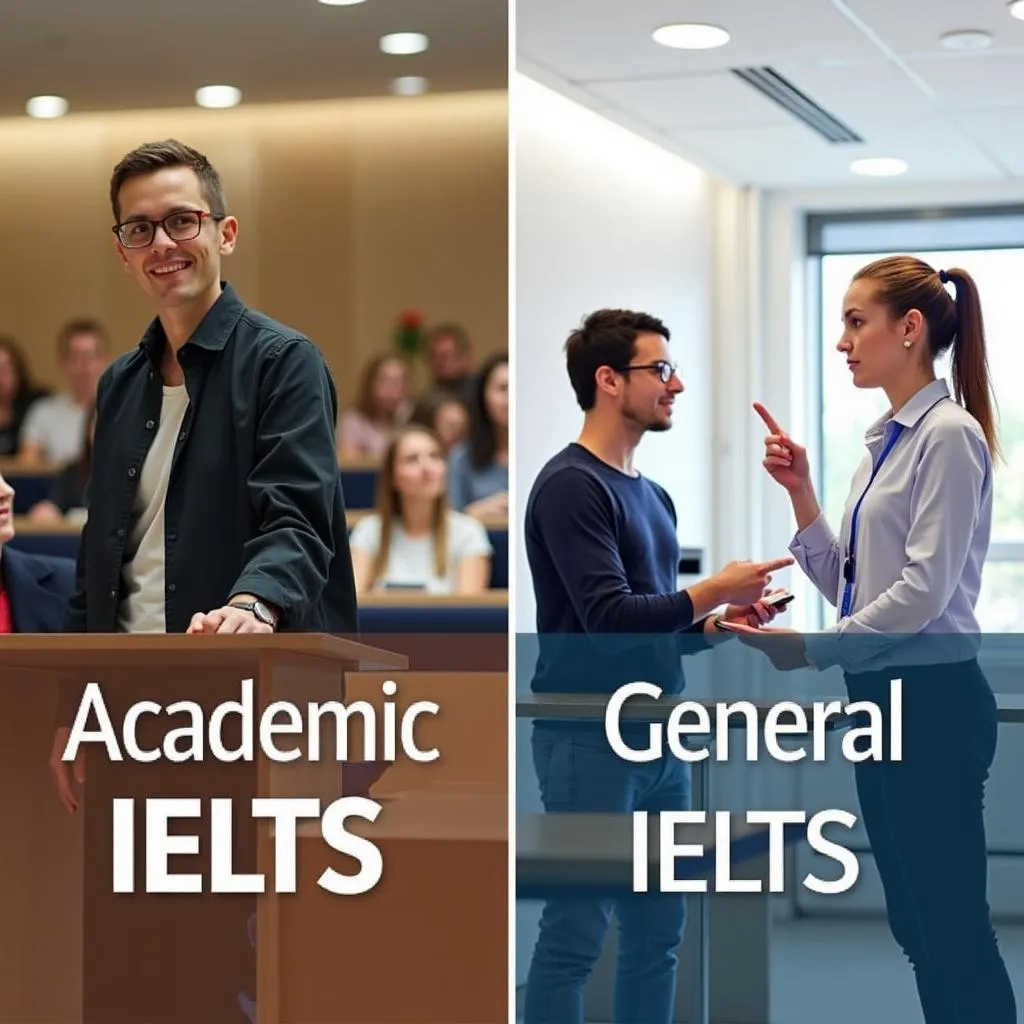Understanding the Two IELTS Test Formats
The International English Language Testing System (IELTS) offers two distinct test formats: Academic and General Training. Each version is designed to assess English language proficiency for different purposes, and understanding their differences is crucial for test-takers to choose the right format and prepare effectively.
Purpose and Target Audience
The Academic IELTS is primarily intended for individuals planning to study at universities or pursue professional registration in English-speaking countries. It assesses whether a candidate is ready to begin studying or training in an environment where English is the language of communication.
On the other hand, the General Training IELTS is designed for those planning to undertake non-academic training, gain work experience, or immigrate to English-speaking countries. It focuses on basic survival skills in broad social and workplace contexts.

Structural Similarities and Differences
Both IELTS formats include four sections: Listening, Reading, Writing, and Speaking. While the Listening and Speaking sections are identical for both versions, significant differences exist in the Reading and Writing components.
Listening Section
The Listening test is the same for both Academic and General Training versions. It consists of four recorded monologues and conversations, with a total of 40 questions to be answered in 30 minutes.
Speaking Section
The Speaking test is also identical for both formats. It’s a face-to-face interview with an examiner, lasting 11-14 minutes and divided into three parts: introduction and interview, individual long turn, and two-way discussion.
Reading Section
This is where the first major difference appears:
- Academic Reading: Contains three long texts of an academic nature, sourced from books, journals, and newspapers. The texts are authentic and can be complex, requiring a higher level of comprehension.
- General Training Reading: Features three sections with texts from everyday sources such as advertisements, company handbooks, and newspapers. The complexity increases progressively, with the final section containing longer, more complex texts.
Both versions have 40 questions to be completed in 60 minutes, but the nature of the texts and questions differs significantly.
Writing Section
The Writing section also differs between the two formats:
- Academic Writing: Task 1 requires describing visual information (graph, table, chart, or diagram) in your own words. Task 2 is an essay response to a point of view, argument, or problem.
- General Training Writing: Task 1 involves writing a letter in response to a given situation. Task 2 is an essay, similar to the Academic version but may be slightly less formal in style.
Both versions allocate 60 minutes for the Writing section, with Task 2 carrying more weight than Task 1.
Scoring and Results
Despite the differences in content, both IELTS formats use the same 9-band scoring system. This means that scores from Academic and General Training tests are directly comparable. However, it’s important to note that some institutions or organizations may have specific band score requirements for different purposes.
Choosing the Right IELTS Test
Selecting the appropriate IELTS test is crucial for achieving your goals. Here are some guidelines:
-
Choose Academic IELTS if you’re:
- Applying to undergraduate or postgraduate degree programs
- Seeking professional registration (e.g., for medical professionals)
- Applying for a student visa in some countries
-
Opt for General Training IELTS if you’re:
- Planning to migrate to an English-speaking country
- Applying for secondary education, training programs, or work experience
- Seeking to establish your business in an English-speaking country
Preparation Strategies
While the core language skills tested are similar, your preparation should be tailored to the specific format you’re taking:
For Academic IELTS:
- Focus on academic vocabulary and formal writing styles
- Practice interpreting graphs, charts, and diagrams
- Read academic journals and scientific articles to familiarize yourself with complex texts
For General Training IELTS:
- Improve your everyday English vocabulary
- Practice writing letters for various purposes (formal and informal)
- Read a variety of general texts, including newspapers, advertisements, and instruction manuals
Common Misconceptions
It’s important to address some common misconceptions about the two IELTS formats:
- Difficulty level: Neither version is inherently easier or harder. The difficulty depends on your background and familiarity with the content.
- Acceptance: While Academic IELTS is more widely accepted for higher education, many universities also accept General Training scores for certain programs.
- Preparation time: Both formats require thorough preparation. Don’t assume General Training requires less study time.
Conclusion
Understanding the differences between Academic and General IELTS is crucial for choosing the right test and preparing effectively. While they share similarities in the Listening and Speaking sections, the Reading and Writing components are tailored to different purposes. By aligning your choice with your goals and preparing accordingly, you can maximize your chances of achieving the band score you need for your future endeavors.
Remember, regardless of which format you choose, consistent practice, familiarity with the test structure, and improving your overall English language skills are key to success in IELTS. Consider your long-term goals, research the requirements of your target institutions or organizations, and choose the IELTS format that best suits your needs.